
here are hot rods and then there are hot rods. What does that mean? Rick Love of New Braunfels, Texas, is no stranger to our hobby, its industry, nor driving his homebuilt 1939 Ford Deluxe coupe from event to event since 1984. The Grabber Blue and flamed 1939 Ford coupe has ushered Rick, whether it be coast-to-coast or state-to-state, numerous times as he covers the rodding world, helping car guys everywhere maintain their cool. Rick is the president of one of the oldest, largest, and most reputable manufacturers in our hobby, as the name Vintage Air is synonymous with air conditioning throughout our industry.

here are hot rods and then there are hot rods. What does that mean? Rick Love of New Braunfels, Texas, is no stranger to our hobby, its industry, nor driving his homebuilt 1939 Ford Deluxe coupe from event to event since 1984. The Grabber Blue and flamed 1939 Ford coupe has ushered Rick, whether it be coast-to-coast or state-to-state, numerous times as he covers the rodding world, helping car guys everywhere maintain their cool. Rick is the president of one of the oldest, largest, and most reputable manufacturers in our hobby, as the name Vintage Air is synonymous with air conditioning throughout our industry.
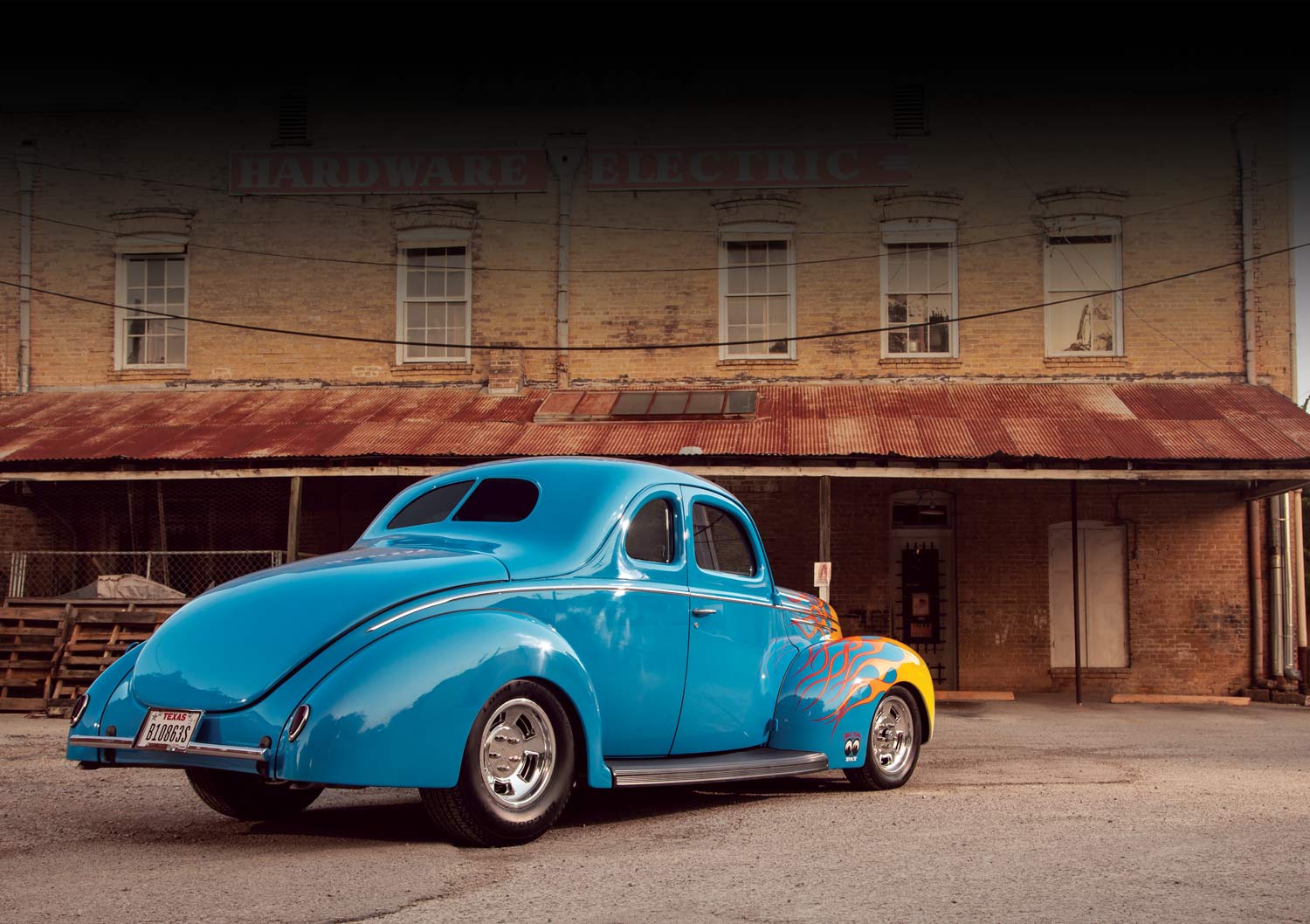
“Since I was young kid … in upstate New York, I had always thought the 1939-1940 Ford coupe was one of the best-looking hot rods there was. After I sold my 1940 Pontiac at the Street Rod Nationals in 1984, I decided I really wanted to build one—and it had to have a killer set of flames. I went to the NSRA Nats North in Detroit and found a somewhat-faded black coupe sitting by its lonesome with a small For Sale sign. The guy I bought it from was the second owner and he had owned it since 1970 and had turned it into a street rod in 1972 and driven it ever since. The black paint was shot over the original green. Despite being in the north its entire life, it was rust-free and still had all of its original sheetmetal.”
(Quick story from Modern Rodding freelancer Gerry Burger: I was with Rick when he bought the 1939 at the Nats North. It was black with burgundy velour interior—that faded to pink—but a very solid car. We looked it over carefully and Rick fretted about it all weekend before finally pulling the trigger. Now, Rick isn’t exactly famous for throwing money around so you can imagine what it was like to part with that large sum of money.)
“I drove the car home and started a teardown, intending on a simple rebuild and refresh. I was living in a small house with a one-car garage, so I would have to roll the car out into the driveway to work on it.” This first build back in 1984 to 1985 produced results from Rick and his two close friends Danny Zoeller and Jim Linton. “We did the bodywork and PPG Mustang Grabber Blue lacquer in my buddy Danny Zoeller’s two-car garage, and a friend of mine from Dallas named Pat Barnhart added the multi-color candy and pearl flames. Famed Texas ’striper, the late Jake Hudson, outlined the flames and added the ‘Hot Licks by Pat’ logo on the front fenders. A local San Antonio trimmer replaced the worn-out red crushed velvet interior with a traditional black vinyl tuck ’n’ roll pattern over the original stock bench seat. We finished the build in the spring of 1985 and our ‘South Texas Bunch’ group attended quite a few events, including the Nats South in Knoxville [Tennessee] and the Street Rod Nationals in St. Paul [Minnesota]. For the next 30 years, the old 1939 would take me to numerous events from coast to coast and even serve as a daily driver when needed.
“My wife, Linda, then girlfriend, and I drove it to Florida on our first vacation together, and we used it in our wedding. It has also served as an R&D vehicle for some Vintage Air product development, and even got some wind tunnel time as Jack Chisenhall (Vintage Air founder) was developing new condensers to operate with the then-new 134a refrigerant in the early ’90s. Like most longterm hot rods, I continued to upgrade it and add new parts through the years.”
Now that it was time for the second build, which took place between 2014 to 2019, Rick, Zoeller, and George Packard jumped in and generated what appears to be the same car yet thoroughly upgraded from bumper to bumper and floorpan to roof. What was supposed to be a “quick turnaround,” the “remove and replace,” turned into a complete rebuild that altered a one-year build into a four-year build. Oh well!
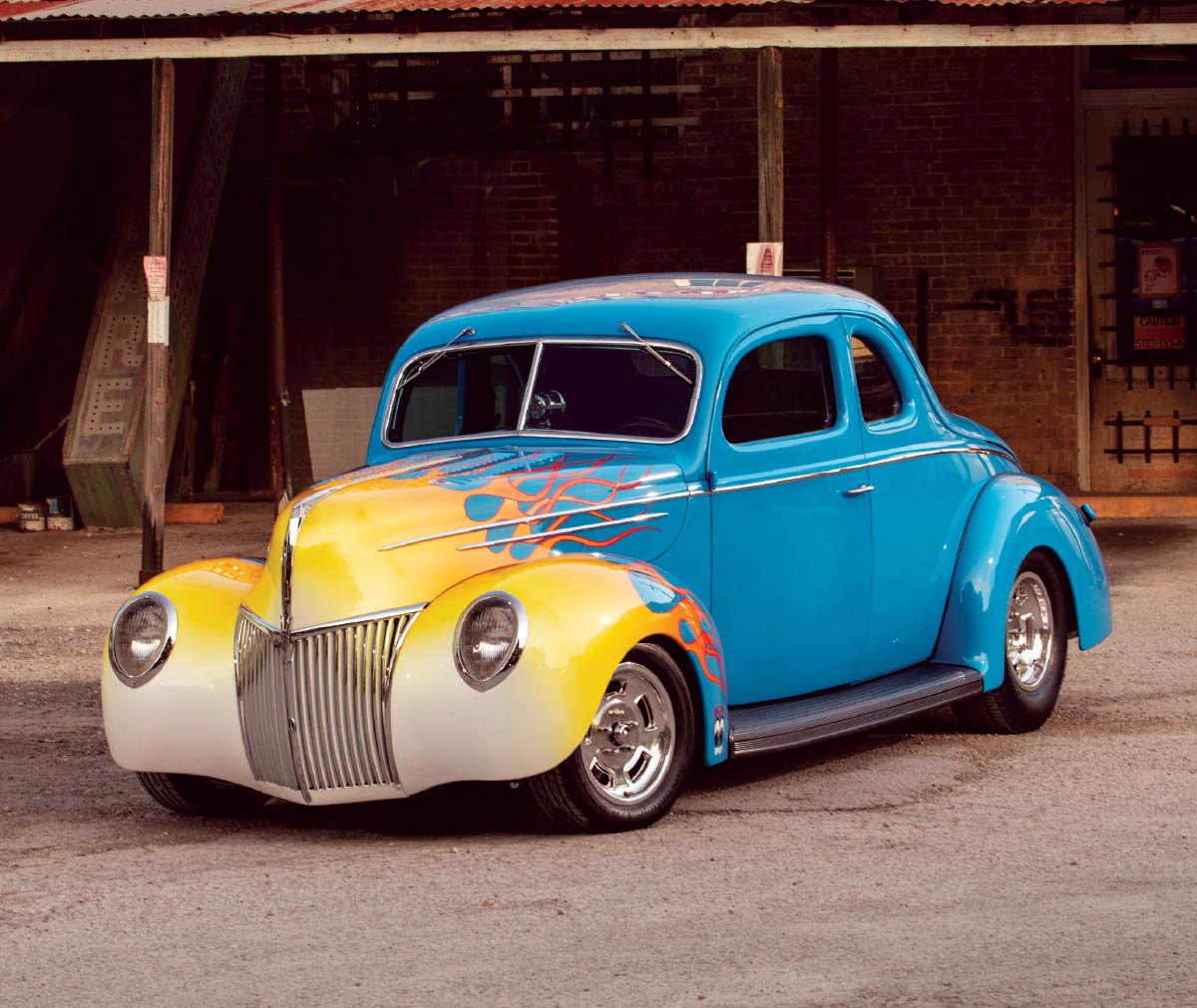
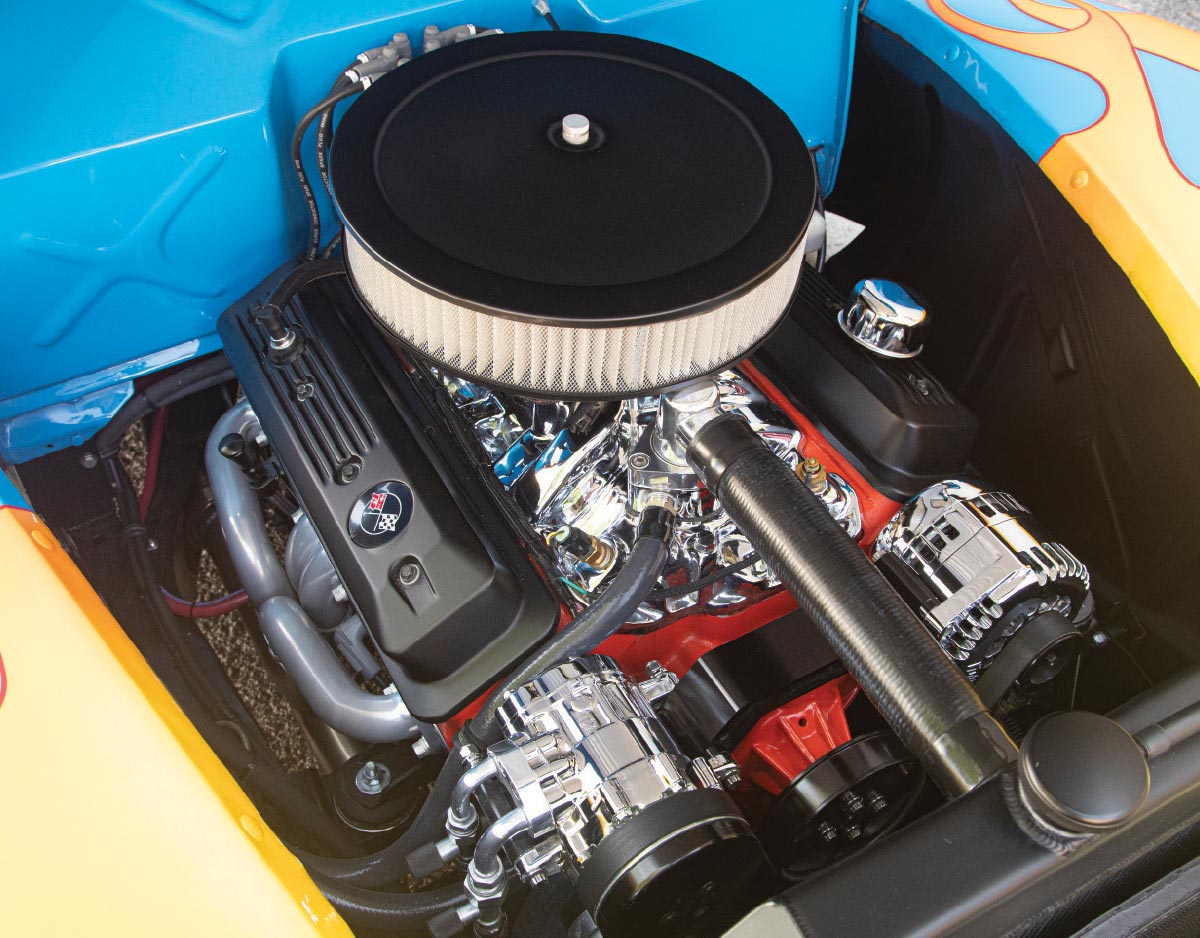
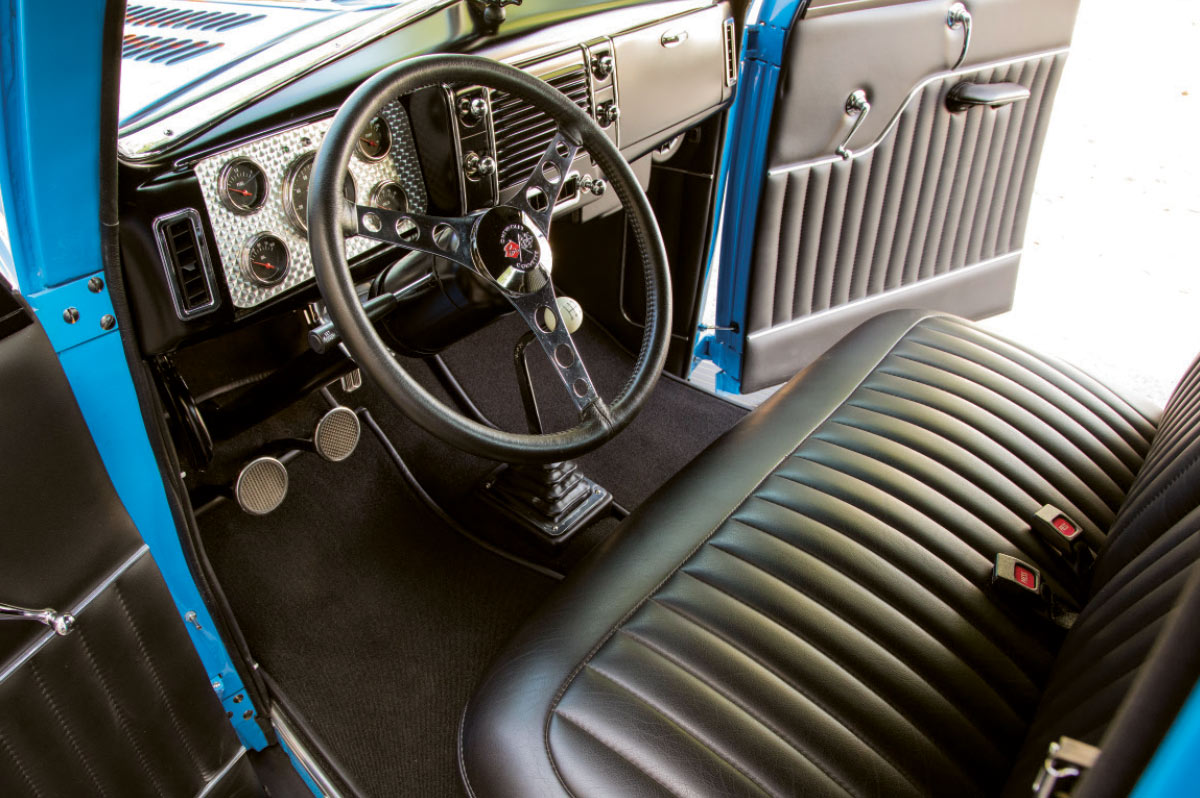
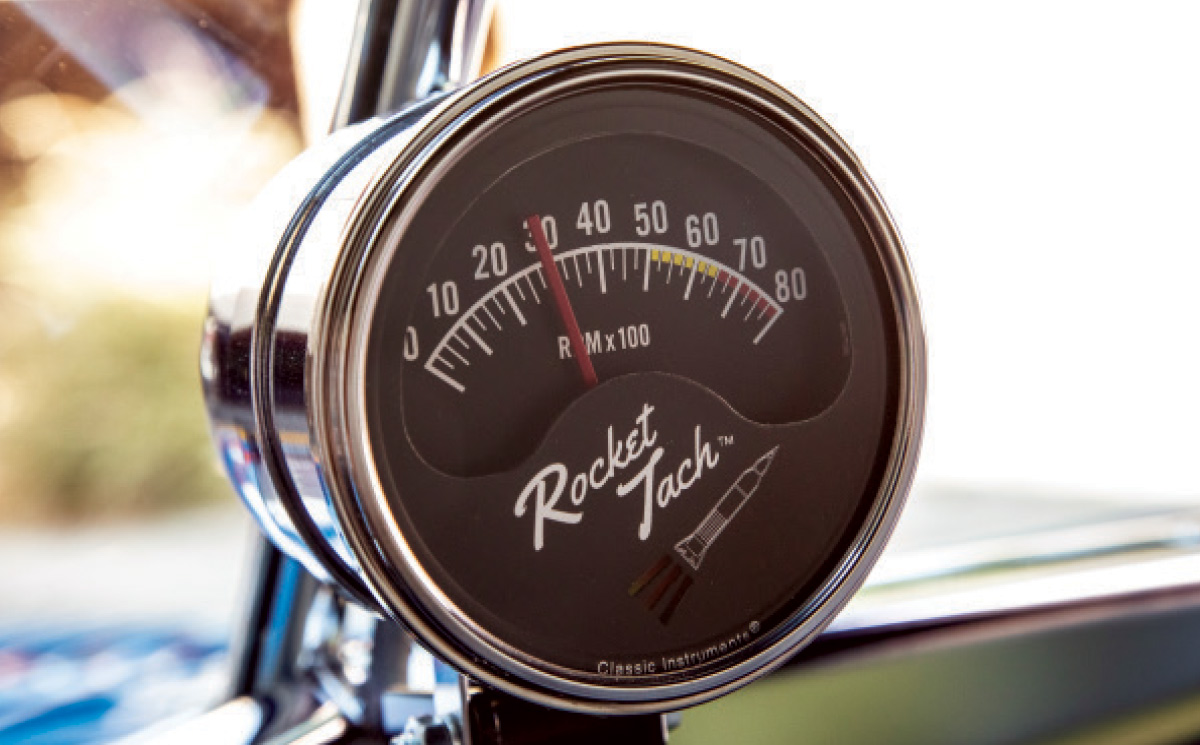
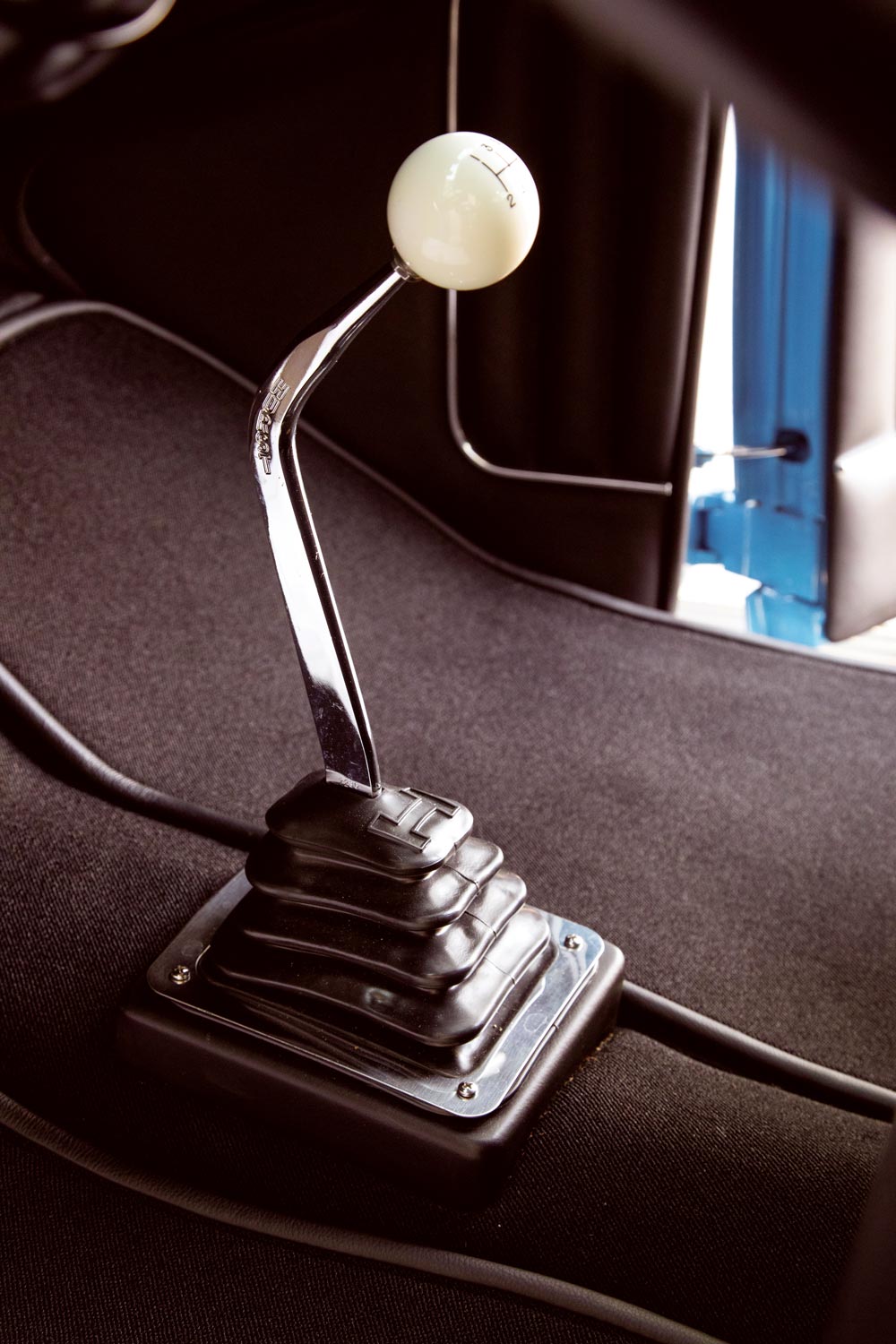
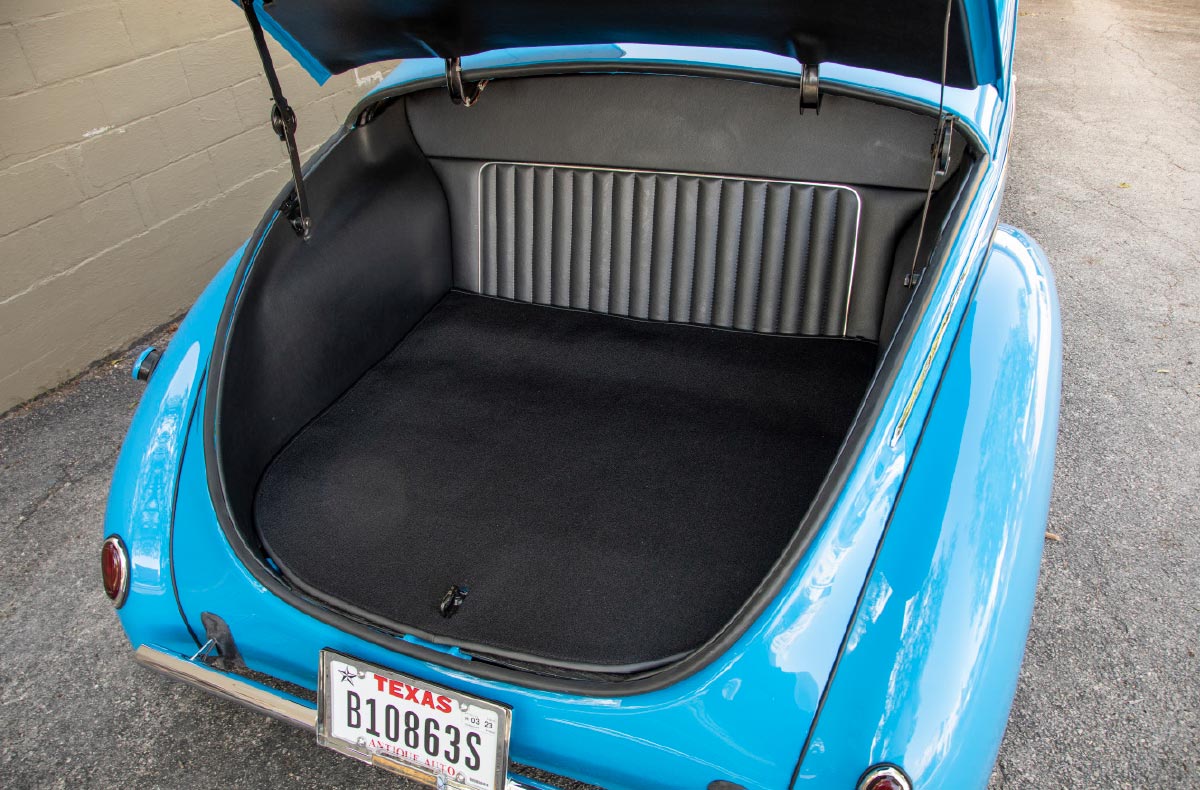
A BorgWarner World Class five-speed with an S-10 tailshaft housing (to ensure proper placement of the shift lever within the interior) is bolted to the small-block. All of the necessary tranny mods were properly handled by Bowler Performance Transmissions. Gear selection is made easier through the use of the ubiquitous Hurst shifter moving effortlessly thanks to the Centerforce flywheel, clutch, and pressure place. Scooping up the power on the way to the rear wheels is a John’s Industries–prepped Ford Maverick 8-inch rearend complete with 3.55 gears. Positioning the rear axle is a RideTech stainless steel triangulated four-bar with coilovers, a Chassis Engineering sway bar, and Ford drum brakes.
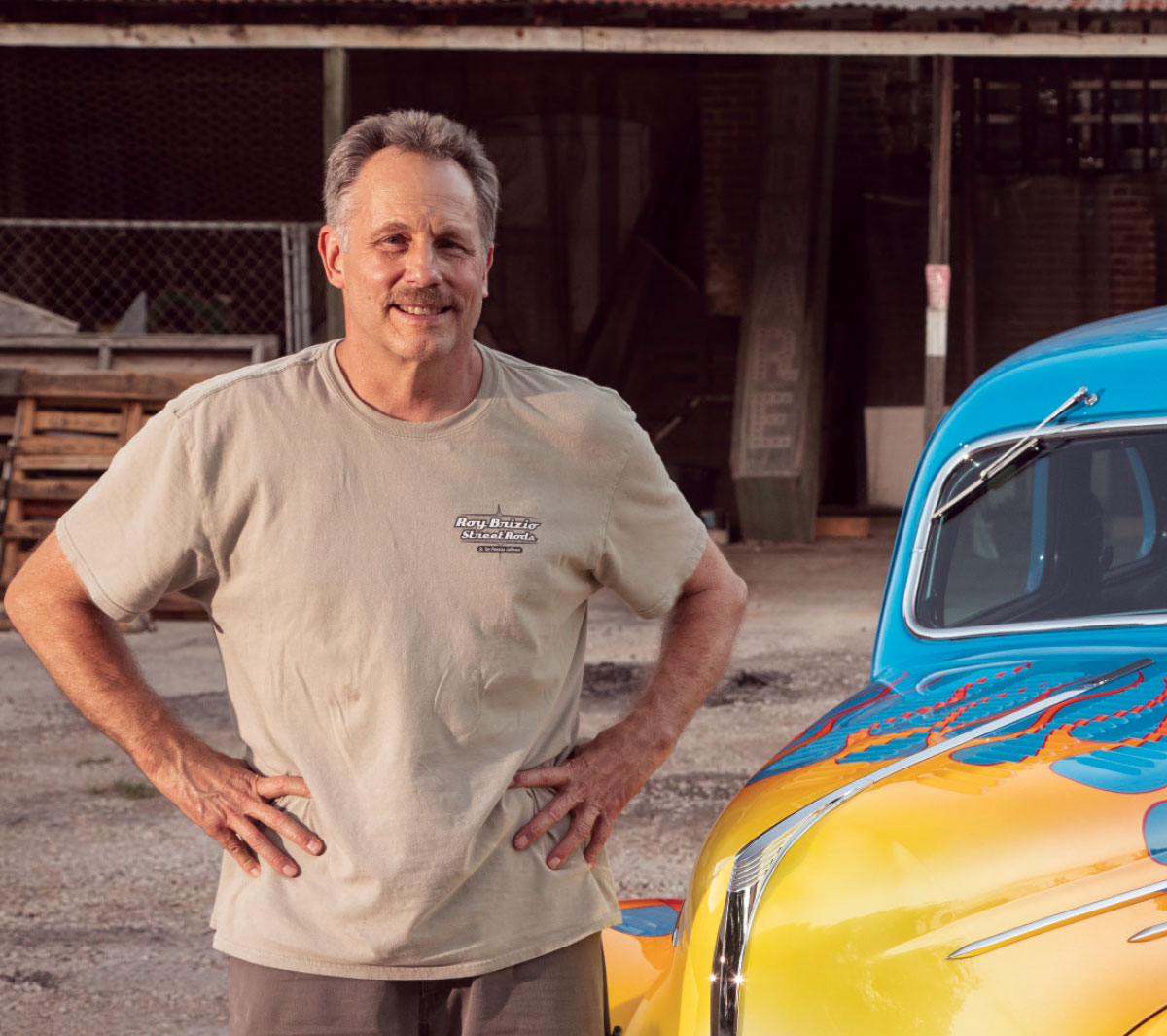
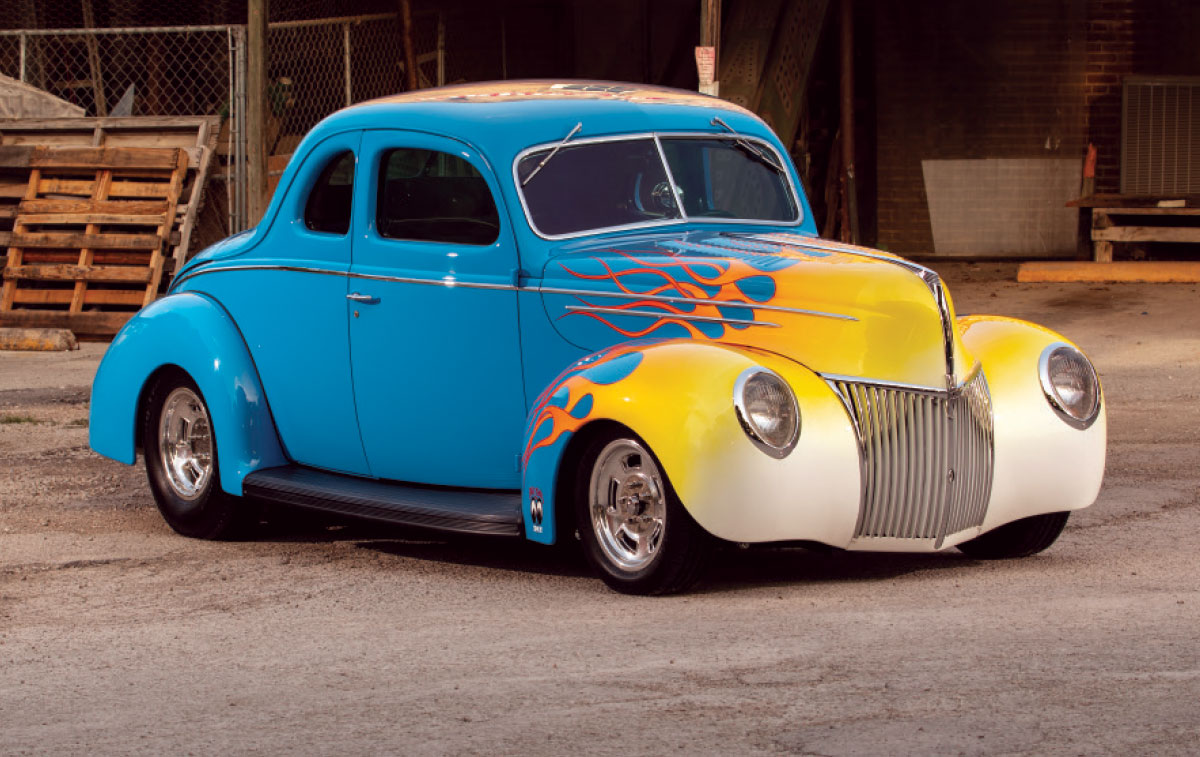

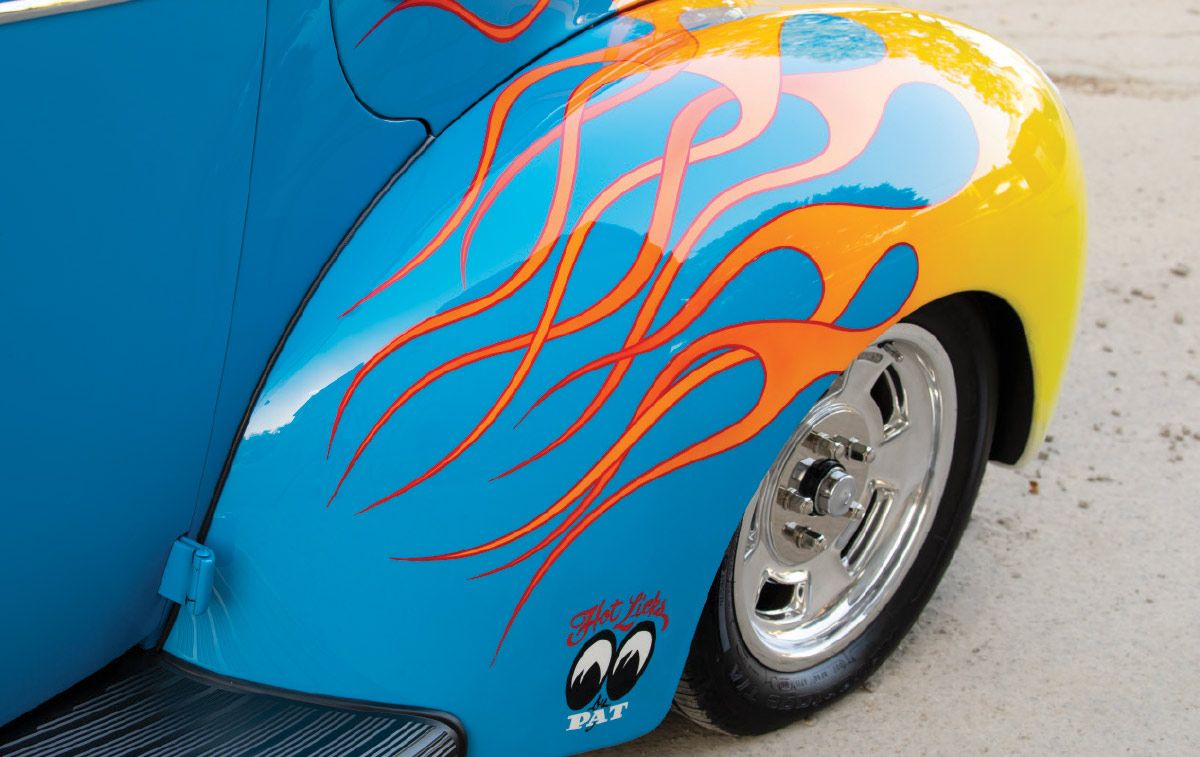
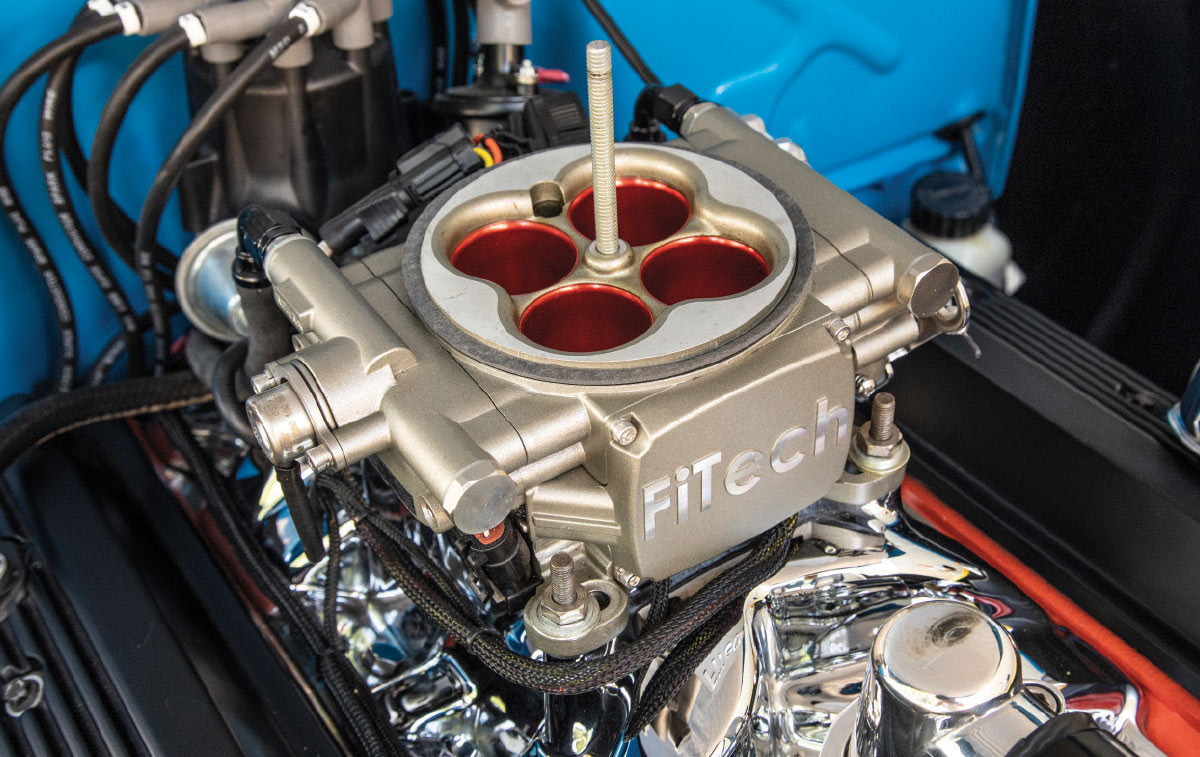
The interior is based on a stock dash with louvers molded in by Cimtex Rods and from here the Classic Instruments custom face gauges are used along with a dash-mounted Rocket Tach. Since the coupe had well-worn and tired wiring, Rick also thought it a good idea to rewire the hot rod; this time he used an American Autowire Highway 15 kit. The 1939 coupe uses an OE Ford split-bench seat and a handmade rear seat (liberal use of the word “rear seat”). Robert Hernandez of Gabriel and Son Custom Auto Upholstery stitched the Moore & Giles black leather over the seating along with the use of positioned Lokar aluminum trim strips. There’s also a pair of Juliano’s three-point seatbelts that are fitted to the interior. The Daytona black weave carpeting comes from Auto Custom Carpets.
A homebuilt and continuously driven hot rod is always a good sign for any car guy, but especially one who works in the industry.